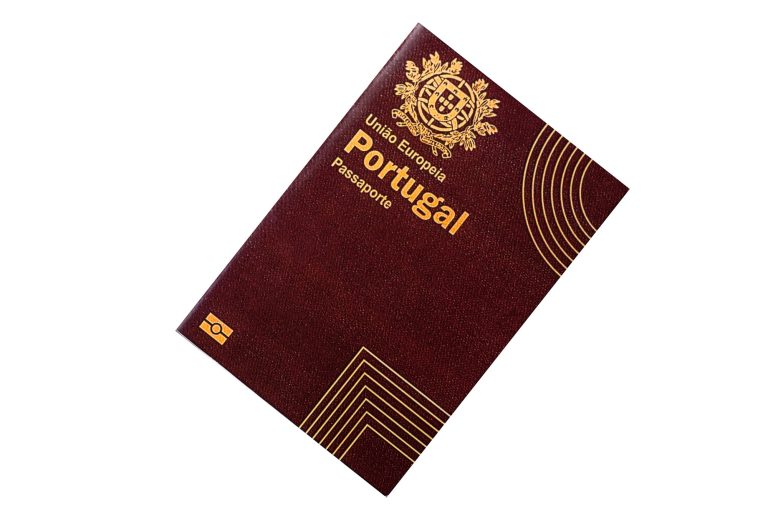Complete Guide to Getting Your Doctorate in Portugal: Opportunities for International Students
Pursuing a doctorate in Portugal has become an increasingly attractive option for international students seeking world-class education in a welcoming, affordable environment. With its modern educational system, strong research infrastructure, and exceptional quality of life, Portugal offers unique advantages for doctoral candidates from around the globe. Access Portugal, as your trusted partner in Portuguese immigration and education services, brings you this comprehensive guide to help you navigate your doctoral journey in Portugal.
Why Choose Portugal for Your Doctorate?
Portugal has emerged as a premier destination for international doctoral students, offering a unique combination of academic excellence and quality of life. The country’s strategic position in Europe, coupled with its modern research facilities and internationally recognized programs, makes it an ideal choice for pursuing advanced degrees.
The Portuguese government has invested significantly in higher education and research infrastructure over the past decade. This commitment has resulted in state-of-the-art facilities, cutting-edge research centers, and partnerships with leading global institutions. International students particularly benefit from Portugal’s multicultural atmosphere and the widespread use of English in academic settings.
Access Portugal has helped numerous doctoral candidates navigate the complexities of studying in Portugal. Our expertise shows that students are drawn to Portugal not just for its academic offerings, but also for the balanced lifestyle it provides. The country’s 3,000 hours of sunshine annually, combined with its rich cultural heritage and modern amenities, creates an environment conducive to both intensive research and personal well-being.
Furthermore, Portugal’s position as a gateway between Europe, Africa, and the Americas provides unique opportunities for international collaboration and research. The country’s historical connections and modern diplomatic relationships facilitate academic exchanges and joint research projects across continents.
The Portuguese Higher Education System
Understanding Portugal’s higher education system is crucial for prospective doctoral students. The system follows the Bologna Process, ensuring compatibility with other European educational systems and facilitating international mobility. Doctoral programs in Portugal typically last three to four years, though this can vary depending on the field of study and whether you’re pursuing full-time or part-time studies.
Portuguese universities are divided into two main categories: public universities and polytechnic institutes, both offering doctoral programs. Public universities focus on theoretical and research-oriented education, while some specialized institutions offer practice-based doctorates. All institutions are evaluated and accredited according to the highest international standards by the Agency for Assessment and Accreditation of Higher Education (A3ES).
The academic year in Portugal runs from September to July, divided into two semesters. Doctoral programs typically involve coursework during the first year, followed by independent research leading to the dissertation. Many programs now offer structured doctoral programs with mandatory seminars, workshops, and research training modules to better prepare students for their research careers.
Quality assurance in Portuguese higher education is rigorous. Regular evaluations ensure that programs maintain high standards and relevance to current research trends. This commitment to quality has helped Portuguese universities climb international rankings and attract top researchers from around the world.
Top Universities for Doctoral Programs
Portugal boasts several universities that excel in doctoral education and research. The University of Lisbon, formed from the merger of the former University of Lisbon and the Technical University of Lisbon, is the country’s largest university and offers over 100 doctoral programs across diverse fields. Its research output and international partnerships make it a top choice for many international students.
The University of Porto, consistently ranked among Portugal’s best universities, is particularly strong in engineering, sciences, and medicine. Its Faculty of Engineering is renowned for cutting-edge research in various technological fields. Nova University Lisbon has gained recognition for its innovative approach to doctoral education, particularly in business, economics, and social sciences.
The University of Coimbra, one of Europe’s oldest universities, combines tradition with modern research facilities. Its strong programs in humanities, law, and sciences attract students seeking a blend of historical academic tradition and contemporary research opportunities. ISCTE – University Institute of Lisbon specializes in business sciences, sociology, and public policy, offering several English-taught doctoral programs.
Regional universities like the University of Minho, University of Aveiro, and University of Algarve also offer excellent doctoral programs with specific research strengths. These institutions often provide more personalized attention and may offer unique research opportunities in specialized fields. Access Portugal can help you identify the best institution for your specific research interests and career goals.
Admission Requirements and Application Process
Admission to doctoral programs in Portugal requires careful preparation and understanding of specific requirements. Generally, applicants must hold a master’s degree or equivalent qualification in a relevant field. Some programs may accept exceptional candidates with only a bachelor’s degree if they demonstrate outstanding academic achievement and research potential.
The application process typically begins with identifying potential supervisors whose research interests align with yours. Portuguese universities encourage prospective students to contact faculty members before applying, as having a committed supervisor significantly strengthens your application. You’ll need to prepare a detailed research proposal outlining your intended project, methodology, and expected contributions to your field.
Required documents usually include academic transcripts, degree certificates, CV, motivation letter, research proposal, and letters of recommendation. International students must provide certified translations of documents not originally in Portuguese or English. Language proficiency requirements vary by program, but many doctoral programs require English proficiency certificates such as IELTS or TOEFL for English-taught programs, or Portuguese language certificates for Portuguese-taught programs.
Application deadlines differ between universities and programs, but most have main intake periods for September/October start dates. Some programs offer rolling admissions or multiple intake periods. Access Portugal recommends beginning your application process at least 6-8 months before your intended start date to allow time for document preparation, visa processing, and accommodation arrangements. We provide comprehensive support throughout this process, ensuring all requirements are met and deadlines observed.
Funding Opportunities and Scholarships
Financial support for doctoral studies in Portugal comes from various sources, making it accessible to talented international students regardless of their economic background. The Fundação para a Ciência e Tecnologia (FCT) is the primary public funding body, offering competitive scholarships through annual calls. These scholarships cover monthly stipends, tuition fees, and sometimes additional research or travel expenses.
FCT scholarships are open to EU citizens, residents of Portugal, and international students with specific residency statuses. The selection process is highly competitive, with approximately 30% of applicants receiving funding. Evaluation criteria include the quality of the research proposal, academic merit, and the hosting institution’s research environment. Monthly stipends currently range from €1,144 to €1,686, depending on the scholarship type.
Many Portuguese universities offer their own doctoral scholarships funded through research projects, partnerships with industry, or institutional funds. These opportunities may be advertised separately from general admissions and often require working on specific research projects. The University of Lisbon, for example, offers various scholarship programs for international students, while other institutions have partnerships with foundations and private companies providing doctoral funding.
International funding sources also support doctoral studies in Portugal. The European Union’s Marie Skłodowska-Curie Actions, Erasmus+ program, and various bilateral agreements between Portugal and other countries provide additional opportunities. Private foundations like the Calouste Gulbenkian Foundation, Luso-American Development Foundation, and La Caixa Foundation offer competitive scholarships for doctoral candidates. Access Portugal assists students in identifying suitable funding opportunities and preparing strong scholarship applications, significantly improving their chances of securing financial support.
Student Visa Requirements for Doctoral Candidates
Obtaining the correct visa is crucial for international doctoral students planning to study in Portugal. EU/EEA citizens enjoy freedom of movement and don’t require a visa, though they must register their residence if staying longer than three months. Non-EU students need to apply for a D4 Study Visa, specifically designed for students pursuing higher education in Portugal.
The D4 visa application process requires several documents, including acceptance letters from Portuguese universities, proof of financial means, accommodation arrangements, health insurance, and criminal record certificates. Financial requirements typically involve demonstrating access to at least €700-800 per month for living expenses, though this can be covered by scholarship letters or sponsor declarations. Access Portugal specializes in guiding doctoral candidates through this process, ensuring all documentation meets current requirements.
Processing times for D4 visas vary by country but generally take 30-60 days. We recommend initiating the visa application immediately after receiving university acceptance to avoid delays. The initial visa is typically valid for four months, allowing entry into Portugal. Upon arrival, students must apply for a residence permit at SEF (Serviço de Estrangeiros e Fronteiras) or AIMA (Agência para a Integração, Migrações e Asilo), which will cover the duration of their studies.
Doctoral students can bring family members through the family reunification process. Spouses and dependent children can apply for residence permits that allow them to live, study, and work in Portugal. The D4 visa also permits doctoral students to work part-time (up to 20 hours per week) during their studies, providing additional income opportunities. After completing their doctorate, graduates can apply for a job seeker visa to explore career opportunities in Portugal.
Cost of Living and Student Life
Portugal offers one of the most affordable living costs in Western Europe, making it particularly attractive for doctoral students on limited budgets. Monthly living expenses for students typically range from €700 to €1,200, depending on location and lifestyle choices. Lisbon and Porto, while offering more opportunities and amenities, are more expensive than smaller university cities like Coimbra, Braga, or Aveiro.
Accommodation represents the largest expense for most students. University residences offer the most affordable option, with monthly costs ranging from €150 to €300. Private shared apartments are popular among doctoral students, with rooms costing €250-500 in major cities. Many students find accommodation through university services, online platforms, or social media groups dedicated to student housing. Access Portugal can connect you with reliable housing resources and help navigate rental agreements.
Daily living costs in Portugal remain reasonable compared to other European countries. Groceries for one person average €150-200 monthly, while a meal at a university cafeteria costs around €3-5. Public transportation is efficient and affordable, with monthly passes costing €30-40 in most cities. Students receive discounts on transportation, cultural events, and many services upon presenting their student cards.
Portuguese student life offers an excellent balance between academic pursuits and leisure activities. Universities organize numerous cultural events, seminars, and social gatherings that facilitate integration and networking. The country’s pleasant climate encourages outdoor activities year-round, from beach visits to hiking in natural parks. Portugal’s rich cultural heritage provides endless exploration opportunities, while its vibrant café culture offers perfect spaces for studying or socializing. The Portuguese people’s warmth and hospitality help international students feel welcome and integrated into local communities 😊.
Research Opportunities and International Partnerships
Portugal’s commitment to research and innovation has created extensive opportunities for doctoral students across various fields. The country participates actively in international scientific organizations including ESA, CERN, EMBO, and others, providing doctoral candidates access to world-class research facilities and collaborative networks. These partnerships enable students to work on cutting-edge projects with global impact.
The MIT Portugal Partnership represents one of the most prestigious collaborations, now in its third phase (MPP2030). This strategic partnership connects Portuguese universities with MIT, focusing on Climate Sciences, Digital Transformation, Terrestrial Systems, and Sustainable Cities. Doctoral students in these programs benefit from co-supervision, exchange opportunities, and access to resources from both Portuguese and MIT faculty.
Portugal’s research landscape includes numerous specialized centers and institutes conducting groundbreaking work. The Instituto de Medicina Molecular, International Iberian Nanotechnology Laboratory, and INESC TEC are just a few examples of facilities where doctoral students engage in innovative research. These centers often have strong industry connections, facilitating knowledge transfer and providing real-world application opportunities for research findings.
The European Research Area integration ensures Portuguese doctoral students can participate in EU-funded projects and mobility programs. Horizon Europe, the EU’s key funding program for research and innovation, provides substantial opportunities for Portuguese-based researchers. Many doctoral projects in Portugal receive funding through these European initiatives, offering students experience in international project management and collaboration. Access Portugal helps students understand these opportunities and connect with appropriate research groups and supervisors aligned with their interests.
Career Prospects After Your Doctorate
Completing a doctorate in Portugal opens diverse career paths both within the country and internationally. Portugal’s growing technology sector, particularly in Lisbon and Porto, actively recruits doctoral graduates for research and development positions. The country has become a European hub for startups and tech companies, creating numerous opportunities for those with advanced research skills and innovative mindsets.
Academic careers remain a popular choice for doctorate holders, with Portuguese universities expanding their faculty to meet growing international student numbers. Post-doctoral positions are available through various funding schemes, including FCT grants and European funding programs. Many successful doctoral graduates transition to permanent academic positions, contributing to Portugal’s research output and mentoring the next generation of researchers.
Portugal’s favorable business environment and startup ecosystem particularly benefit doctorate holders interested in entrepreneurship. The government offers various incentives for creating knowledge-based businesses, including the Startup Visa program for non-EU entrepreneurs. Incubators and accelerators throughout the country provide support for turning research insights into viable businesses. The strong connections between universities and industry facilitate technology transfer and commercialization of research outcomes.
International career mobility is enhanced by the Portuguese doctorate’s recognition throughout the European Higher Education Area and beyond. Graduates find opportunities in international organizations, research institutions, and multinational companies worldwide. The research skills, international networks, and cultural competencies developed during doctoral studies in Portugal prove valuable assets in global job markets. Many choose to maintain connections with Portugal through collaborative projects or by establishing international partnerships, contributing to the country’s position as a research and innovation hub.
Frequently Asked Questions
Q: Can I study for a doctorate in Portugal if I only speak English? A: Yes, many doctoral programs in Portugal are conducted entirely in English, especially in fields like sciences, engineering, and business. Portugal ranks 12th globally for English proficiency, and most academics speak English fluently. However, learning basic Portuguese enriches your experience and aids daily life integration.
Q: How long does a doctorate take in Portugal? A: Full-time doctoral programs typically last 3-4 years, though completion time can vary based on research complexity and field of study. Part-time options are available, usually extending the duration to 5-6 years. The first year often includes coursework, with subsequent years dedicated to research and dissertation writing.
Q: Can my family join me while I pursue my doctorate? A: Yes, doctoral students can bring immediate family members through the family reunification process. Spouses receive residence permits allowing them to work in Portugal, while children can attend Portuguese schools. Access Portugal assists with the entire family relocation process.
Q: What are the Portuguese language requirements for doctoral programs? A: Language requirements depend on your chosen program. English-taught programs typically require IELTS (6.5+) or TOEFL (90+) scores. Portuguese-taught programs may require B2 level Portuguese certification. Some universities offer Portuguese language courses for international students to facilitate integration.
Q: Is it possible to work while pursuing a doctorate in Portugal? A: Yes, student visa holders can work up to 20 hours per week during term time and full-time during holidays. Many doctoral students work as teaching or research assistants within their universities. This provides valuable experience and supplementary income while maintaining focus on doctoral research.
Q: What happens after I complete my doctorate in Portugal? A: Graduates can apply for a job seeker visa allowing them to remain in Portugal for up to one year while seeking employment. Those finding work can then transition to appropriate work visas. Many graduates also qualify for Portuguese residency pathways.
Q: How competitive are FCT doctoral scholarships? A: FCT scholarships are highly competitive, with approximately 30% success rate. Strong research proposals, academic excellence, and alignment with national research priorities improve chances. Access Portugal helps candidates prepare compelling applications and identify alternative funding sources.
Q: Can I change universities or supervisors during my doctorate? A: While possible, changing universities or supervisors requires careful consideration and administrative procedures. Valid reasons include research direction changes or supervisor availability. Both institutions must agree to the transfer, and visa implications need consideration for international students.

Pursuing a doctorate in Portugal offers an exceptional opportunity to advance your academic career while experiencing one of Europe’s most welcoming countries. With its combination of academic excellence, research opportunities, affordable living costs, and outstanding quality of life, Portugal provides an ideal environment for doctoral studies. The country’s investment in research infrastructure, international partnerships, and innovation ecosystems creates numerous opportunities for doctoral candidates to excel in their chosen fields.
Access Portugal stands ready to guide you through every step of your doctoral journey, from initial program selection through visa applications and settlement in Portugal. Our comprehensive understanding of Portuguese immigration law, education systems, and practical living considerations ensures you can focus on your research while we handle the administrative complexities. Whether you need assistance with visa applications, opening a bank account, obtaining your NIF number, or navigating the Portuguese education system, our expert team provides personalized support tailored to your needs.
Take the first step toward your doctoral degree in Portugal today. Contact Access Portugal to discuss your academic goals and discover how we can help make your Portuguese doctoral journey smooth, successful, and rewarding. With our expertise and Portugal’s exceptional opportunities, your path to academic excellence and personal growth awaits 🎓.







